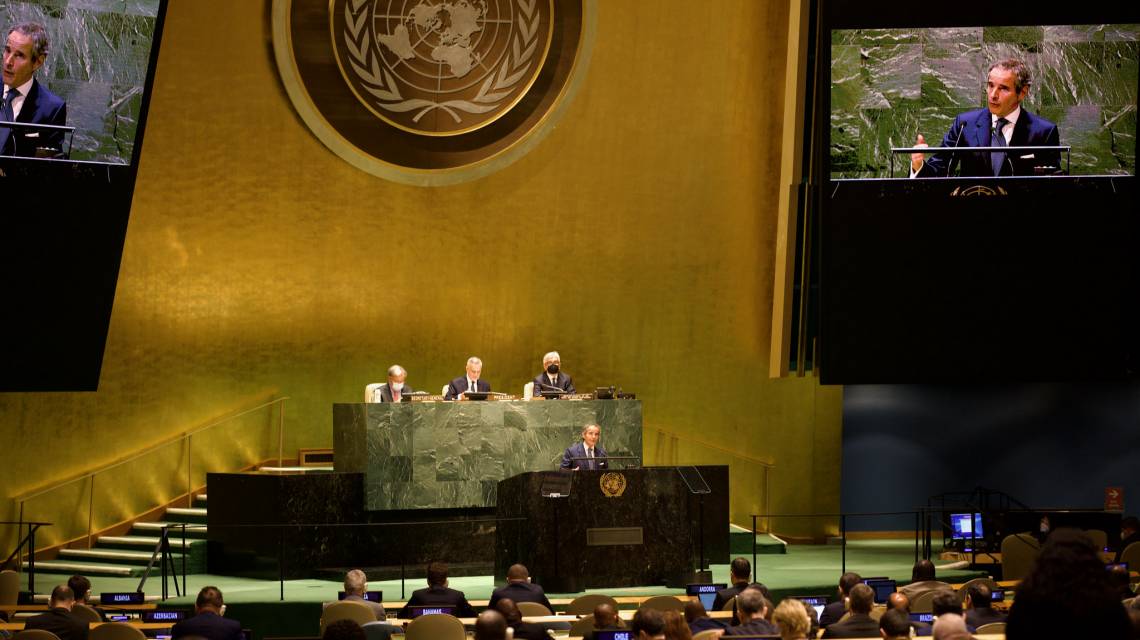“In this moment of global uncertainty, anxiety, fear and distress, we must come together and recommit to the noble principles enshrined in the NPT: nuclear non-proliferation, disarmament, and to promote cooperation in peaceful uses of nuclear energy.”
This was the message from IAEA Director General Rafael Mariano Grossi at the opening session of the Tenth Review Conference of the Parties to the Treaty on the Non-Proliferation of Nuclear Weapons (NPT), which he called vital to peace and development.
He pledged that the IAEA would be with them every step of the way.
“We cannot build a more secure world with more nuclear weapons in existing arsenals and if more countries seek to acquire them,” he told heads of state and government, foreign ministers and other delegates from over 180 countries meeting in New York today.
In his ten-minute address, Mr Grossi spoke about global threats to international security, the growing role low-carbon nuclear power is expected to play in meeting the world’s energy and climate needs, the threats to nuclear safety in the war in Ukraine and the use of nuclear technologies for peaceful purposes globally.
The objective of the NPT, a landmark international treaty that came into force in 1970, is to prevent the spread of nuclear weapons, to promote cooperation in the peaceful uses of nuclear technology and to further the goal of achieving nuclear disarmament. Every five years, senior officials from signatories come together to review the operation of the Treaty.
The IAEA plays a significant role in the Treaty’s implementation. Through inspections and other activities, it verifies that States do not divert nuclear facilities and material to military use, and it facilitates the use of nuclear technology for peaceful purposes in a myriad of areas, including health, food security, and environmental protection.
Non-proliferation
Referring to non-proliferation and the relationship between governments and the IAEA, Mr Grossi said: “Those who truly favour effective safeguards, would never use their cooperation as a bargaining chip, or IAEA inspectors as pawns in a political game.”
Mr Grossi urged all countries that had not yet done so to ratify the latest and most up-to-date legal instruments, enabling the IAEA to fully carry out its nuclear verification mission. “A safeguards regime, reinforced by the additional protocol and the amended small quantities protocol, can give us all the trust and confidence we need that States using nuclear energy for the wellbeing of their people, are not hiding anything.”
He spoke about the status of nuclear verification in Iran: “If we are to offer credible assurances that Iran’s sizable and growing nuclear programme is exclusively for peaceful purposes, Iran must grant IAEA inspectors access commensurate to the size of that programme and provide us complete information.” He added: “The lack of progress in verifying the peaceful nature of Iran’s nuclear programme will have consequences on the regional security landscape.”




